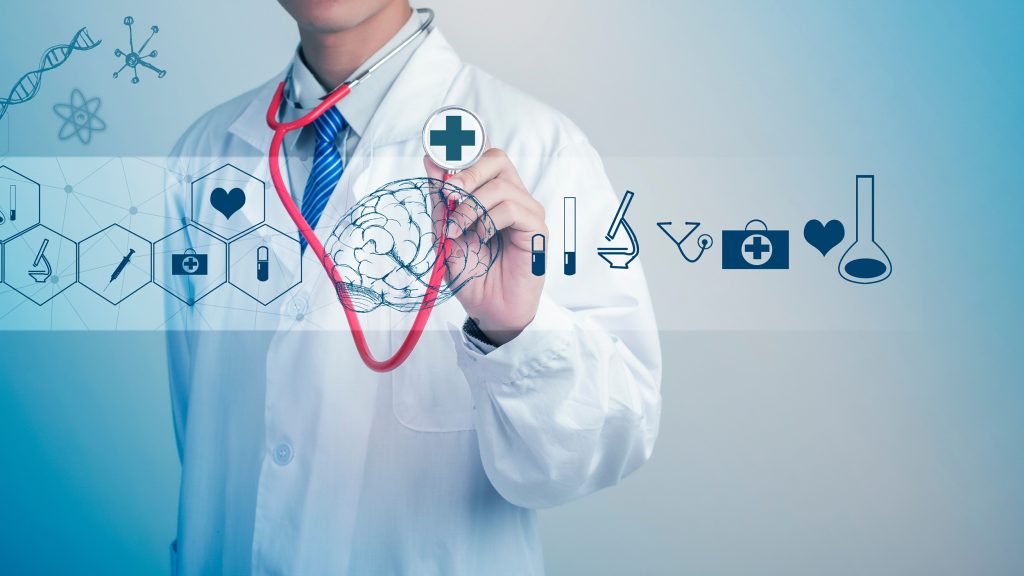Understanding the Significance of Medical Requirements
Medical requirements form the cornerstone of maintaining optimal health and well-being. This essay delves into the importance of understanding and addressing medical requirements, the role of preventive measures, and strategies for effectively managing health needs.

1. Addressing Health Needs Proactively
Medical requirements encompass a range of needs, from routine check-ups and vaccinations to chronic condition management and emergency preparedness. Addressing these needs proactively can prevent health issues from escalating and ensure early intervention.
2. Preventive Measures for Long-Term Health
One of the fundamental aspects of medical requirements is their role in preventive care. Regular health check-ups, screenings, and immunizations are critical for identifying potential health risks early on. By addressing medical requirements, individuals can take steps to prevent the onset of diseases and ensure long-term health.
3. Chronic Condition Management
Individuals with chronic conditions have unique medical requirements that need consistent attention. Medication management, lifestyle modifications, and regular follow-up appointments are essential for effectively managing chronic diseases and preventing complications.
4. Emergency Preparedness and First Aid
Medical requirements extend to emergency preparedness as well. Having a well-stocked first aid kit and knowing basic first aid procedures can make a significant difference in managing injuries or health crises before professional help arrives.
Customizing Medical Requirements for Individual Health
Every individual’s health needs are unique, and understanding how to customize medical requirements is crucial for maintaining well-being. This essay explores the importance of tailoring medical requirements, the role of healthcare professionals, and the benefits of personalized healthcare plans.
1. The Role of Individual Health Profiles
Customizing medical requirements involves considering an individual’s health history, genetics, lifestyle, and preferences. This approach allows healthcare providers to create personalized plans that address specific health needs and goals.
2. Collaboration with Healthcare Professionals
Healthcare professionals play a pivotal role in understanding and customizing medical requirements. Regular visits to doctors, specialists, and other healthcare providers ensure that individuals receive tailored guidance and interventions based on their unique health circumstances.
3. Benefits of Personalized Healthcare Plans
Personalized medical requirements provide numerous benefits, including improved health outcomes, enhanced patient satisfaction, and optimized resource utilization within healthcare systems. When individuals receive the care they truly need, healthcare becomes more effective and efficient.
4. The Shift Towards Preventive and Precision Medicine
The advancement of medical technology has paved the way for preventive and precision medicine. By analyzing genetic information, lifestyle factors, and health history, healthcare providers can identify potential health risks and tailor medical requirements to prevent diseases before they manifest.
Empowering Individuals to Meet Their Medical Requirements
Empowerment plays a central role in ensuring individuals meet their medical requirements effectively. This essay explores the significance of health literacy, self-care practices, community support, and technological advancements in empowering individuals to manage their health needs.

1. Health Literacy and Informed Decision-Making
Health literacy is the foundation of effectively meeting medical requirements. Understanding health information empowers individuals to make informed decisions about their health, follow medical recommendations, and actively participate in their care.
2. Embracing Self-Care Practices
Self-care is an integral part of meeting medical requirements. Engaging in regular exercise, maintaining a balanced diet, managing stress, and getting sufficient sleep are all self-care practices that contribute to overall health and well-being.
3. Community Support and Education
Communities play a vital role in supporting individuals’ medical requirements. Health education programs, support groups, and community resources can enhance individuals’ understanding of health needs and foster a sense of belonging.
4. Technological Advancements for Healthcare Management
Technology has revolutionized healthcare management. Mobile apps, wearable devices, and telemedicine platforms empower individuals to track their health metrics, receive personalized recommendations, and communicate with healthcare providers remotely.
Understanding and addressing medical requirements are integral to maintaining good health. Whether it’s preventive measures, chronic condition management, emergency preparedness, or personalized healthcare plans, meeting these requirements empowers individuals to take charge of their well-being. By customizing care, embracing empowerment strategies, and leveraging technology, individuals can optimize their health and lead fulfilling lives.
Overcoming Challenges in Meeting Medical Requirements
While meeting medical requirements is crucial for overall well-being, there can be challenges along the way. This essay delves into the obstacles individuals may face, strategies to overcome them, and the role of healthcare systems in supporting individuals in meeting their medical needs.
1. Barriers to Meeting Medical Requirements
Several barriers can hinder individuals from effectively meeting their medical requirements. Financial constraints, lack of access to healthcare services, busy lifestyles, and cultural beliefs can all impact an individual’s ability to prioritize and address their health needs.
2. Strategies for Overcoming Challenges
Overcoming these challenges requires proactive strategies. Financial difficulties can be mitigated through insurance coverage, government programs, or community resources. Telemedicine services can bridge the gap for those with limited access to healthcare facilities, while health education initiatives can address cultural misconceptions.
3. The Role of Healthcare Providers
Healthcare providers play a significant role in assisting individuals to meet their medical requirements. A patient-centered approach that takes into account individual circumstances, preferences, and challenges can guide the development of tailored healthcare plans.
4. Empowering Self-Advocacy
Empowering individuals to advocate for their health needs is essential. Education on health rights, understanding medical jargon, and effectively communicating with healthcare providers enable individuals to voice their concerns, ask questions, and actively participate in decisions about their care.
Technology’s Impact on Meeting Medical Requirements
In today’s digital age, technology has transformed how individuals meet their medical requirements. This essay explores the technological advancements shaping healthcare management, their benefits, and the considerations individuals should keep in mind when using technology for health needs.
1. The Rise of Digital Health Solutions
Digital health solutions, such as health apps, wearable devices, and electronic health records, have revolutionized healthcare management. These technologies enable individuals to track health metrics, receive personalized recommendations, and monitor chronic conditions from the comfort of their homes.
2. Enhancing Patient Engagement
Technology fosters greater patient engagement by providing access to medical information, appointment scheduling, and telemedicine services. Engaged patients are more likely to adhere to medical requirements, resulting in improved health outcomes.
3. Privacy and Security Concerns
While technology offers convenience, privacy and security concerns must be addressed. Individuals should be cautious when sharing personal health data online and choose reputable platforms that prioritize data protection.
4. Integrating Technology with Human Touch
Technology should complement, not replace, human interaction. Healthcare systems must strike a balance between technology-driven solutions and maintaining a patient-provider relationship built on trust, empathy, and effective communication.

Advocating for Equitable Access to Medical Requirements
Equitable access to medical requirements is a global concern that requires collective efforts. This essay explores the disparities in healthcare access, the role of governments and organizations in promoting equity, and the potential benefits of ensuring everyone can meet their medical needs.
1. Addressing Healthcare Disparities
Disparities in healthcare access persist in many parts of the world. Factors such as income level, geographic location, and cultural barriers can lead to unequal access to medical requirements. Addressing these disparities is essential for achieving health equity.
2. Government Policies and Programs
Governments play a central role in promoting equitable access to medical requirements. By implementing policies that ensure healthcare services are available to all citizens, governments can bridge gaps in access and create a healthier population.
3. Non-Governmental Organizations and Advocacy
Non-governmental organizations (NGOs) contribute significantly to advocating for equitable healthcare access. Through initiatives that provide medical supplies to underserved communities, offer health education, and promote awareness, NGOs help ensure that all individuals can meet their medical requirements.
4. The Social and Economic Impact
Equitable access to medical requirements has far-reaching social and economic implications. A healthier population is more productive, contributes to economic growth, and reduces the burden on healthcare systems by preventing costly interventions.
In conclusion, meeting medical requirements is a multifaceted endeavor influenced by various factors, including challenges, technology, and the quest for equity. By understanding the barriers individuals face, harnessing technological advancements, advocating for equitable access, and embracing patient-centered approaches, individuals and societies can pave the way for improved health outcomes and well-being.
